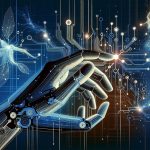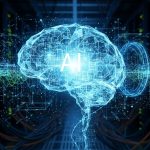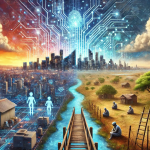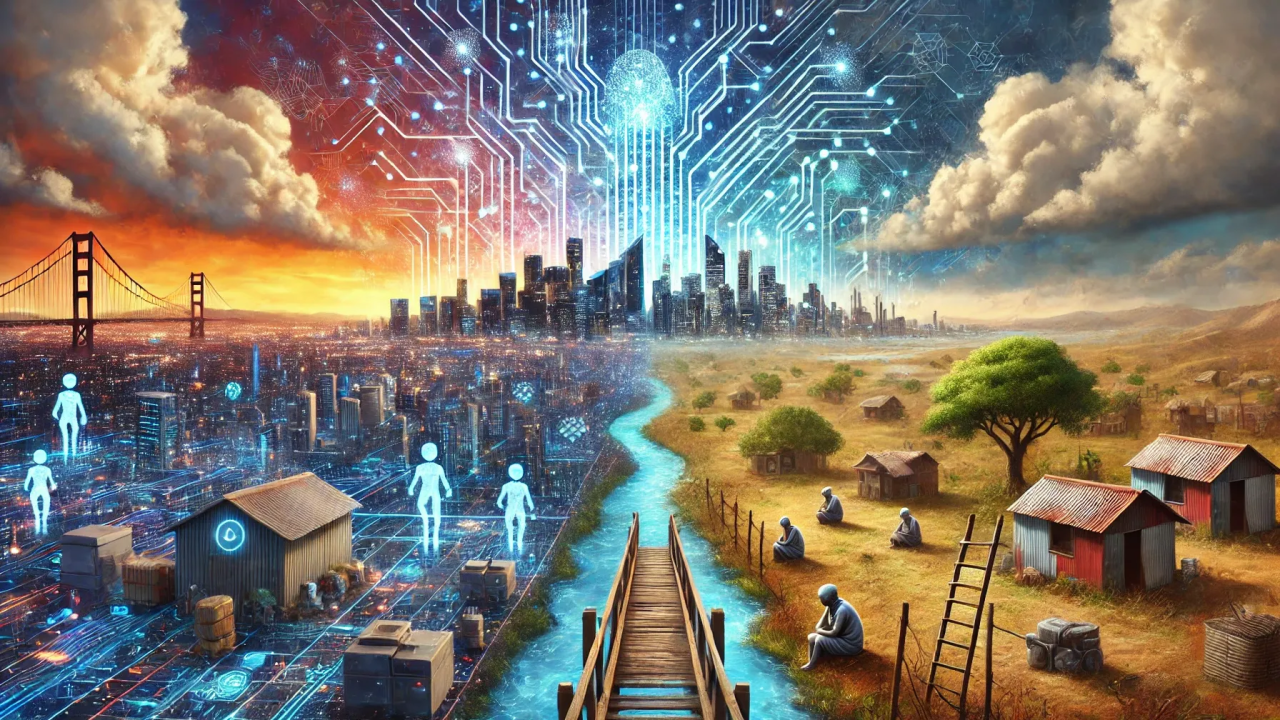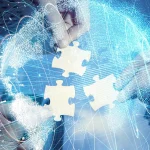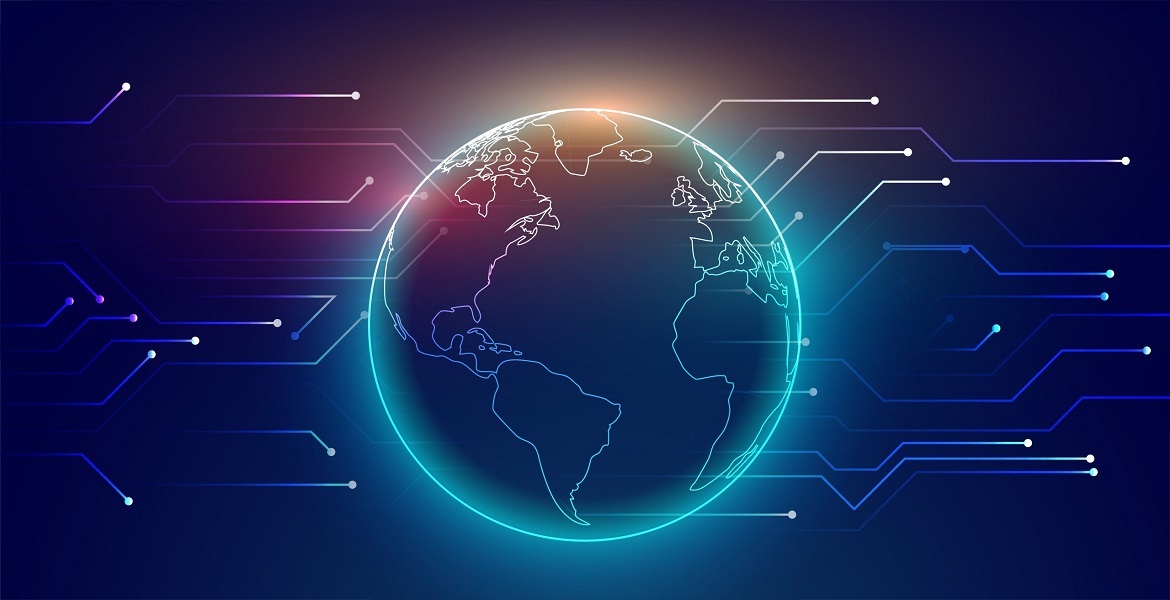Introduction
The rise of artificial intelligence has not only revolutionized industries but has also redefined the foundations of the global economy. Nations that once relied on natural resources now compete through digital infrastructure, data dominance, and technological innovation. The digital economy has become the new battlefield for economic and political power.
As governments, corporations, and celebrities embrace AI-driven transformation, questions about fairness, regulation, and control are taking center stage. The balance between innovation and governance will determine whether technology becomes a tool for prosperity or inequality.
The Rise of the Digital Economy
Over the past decade, the global economy has undergone a massive digital shift. From online marketplaces to fintech platforms, businesses now rely on AI to drive growth, efficiency, and competitiveness. Data has become the new oil, shaping decisions from trade policy to investment strategy.
Countries leading in AI research—like the United States, China, and South Korea—are establishing themselves as economic powerhouses in this new era. However, this digital transformation also widens the gap between technologically advanced nations and those still struggling with connectivity.
Artificial Intelligence and Global Inequality
AI has the potential to elevate entire economies, but it also deepens inequality when access remains limited. Wealthier nations with superior infrastructure and research capabilities dominate the global AI market, leaving developing regions at a disadvantage.
This imbalance is reshaping labor markets, as automation replaces traditional jobs in manufacturing and services. Without policies to promote digital literacy and equitable innovation, the divide between technological “haves” and “have-nots” may become irreversible.
Political Power in the Age of Algorithms
Political influence is no longer measured by military strength alone—it now depends on data control and technological capacity. Governments use AI for surveillance, cybersecurity, and even election management, granting them unprecedented access to information.
However, this power raises ethical concerns about privacy, manipulation, and democratic integrity. Nations that can harness AI responsibly will define the rules of global engagement, while those that misuse it risk destabilizing both domestic and international trust.
Celebrity Endorsement and Tech Advocacy
Celebrities have joined the digital transformation movement, using their platforms to promote tech startups, green innovation, and AI research. Figures like Elon Musk and Emma Watson advocate for responsible technology use, merging fame with futurism.
Their influence shapes public perception of innovation and encourages investment in ethical, sustainable AI. Yet critics caution that celebrity advocacy can sometimes oversimplify complex issues, turning serious debates into viral trends rather than policy discussions.
The Corporate Race for AI Dominance
Tech giants like Google, Amazon, and Alibaba are leading the race for global AI supremacy. Their influence extends beyond business—they now shape policy, labor standards, and even cultural values. Governments are increasingly dependent on these corporations for technological infrastructure.
This corporate dominance has sparked debates about monopoly power, data privacy, and digital sovereignty. Many nations are pushing for regulations to ensure that technological advancement benefits societies rather than concentrating wealth in a few hands.
Environmental Impact of the Digital Revolution
Despite its virtual nature, the digital economy has a tangible environmental cost. Data centers, cryptocurrency mining, and global logistics networks consume massive energy resources. AI, while optimizing systems, also requires intensive computation that contributes to carbon emissions.
Tech companies are now investing in renewable energy and green computing solutions to offset these effects. Sustainable innovation is becoming a moral and economic imperative in the age of digital globalization.
The Future of AI Governance
As artificial intelligence grows more powerful, international cooperation is becoming crucial. Institutions like the United Nations and World Economic Forum are developing guidelines for ethical AI use, focusing on transparency, fairness, and accountability.
However, establishing global standards remains challenging. Nations prioritize their own strategic interests, and regulatory frameworks often lag behind technological advances. The future of AI governance will depend on finding common ground between innovation and responsibility.
FAQs
How is AI driving the global economy?
AI automates industries, optimizes supply chains, and powers digital platforms, making it a central force behind modern economic growth.
What role do politics play in the digital economy?
Governments regulate technology use, fund innovation, and set national strategies that influence global economic competitiveness.
Can AI increase inequality?
Yes, if access to technology and education remains uneven, AI can widen gaps between wealthy and developing nations.
Why are celebrities involved in tech advocacy?
Celebrities use their influence to promote awareness about ethical innovation and sustainability in the tech sector.
Is the digital economy environmentally sustainable?
Not entirely yet, but growing investments in renewable energy and green computing are moving the industry in that direction.
Conclusion
The digital economy represents the intersection of technology, politics, and global ambition. Artificial intelligence is no longer just a tool for innovation—it is a new form of power that shapes wealth, policy, and even international relations. As nations and corporations race toward dominance, the challenge lies in ensuring that progress benefits humanity as a whole.
The path forward demands collaboration, ethical oversight, and an unwavering commitment to sustainability. In this era of rapid change, the future of global prosperity will depend not only on who leads in technology but on how that leadership is used to create a more just, inclusive, and sustainable world.


